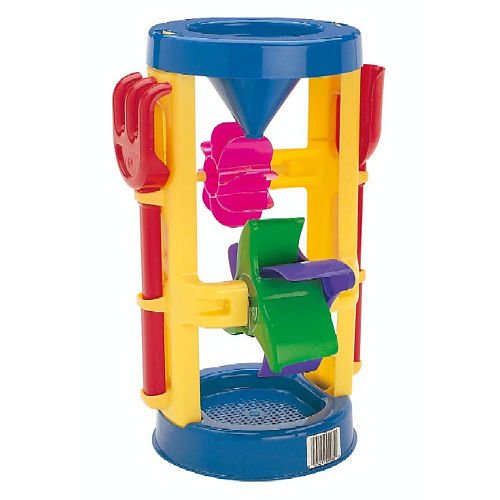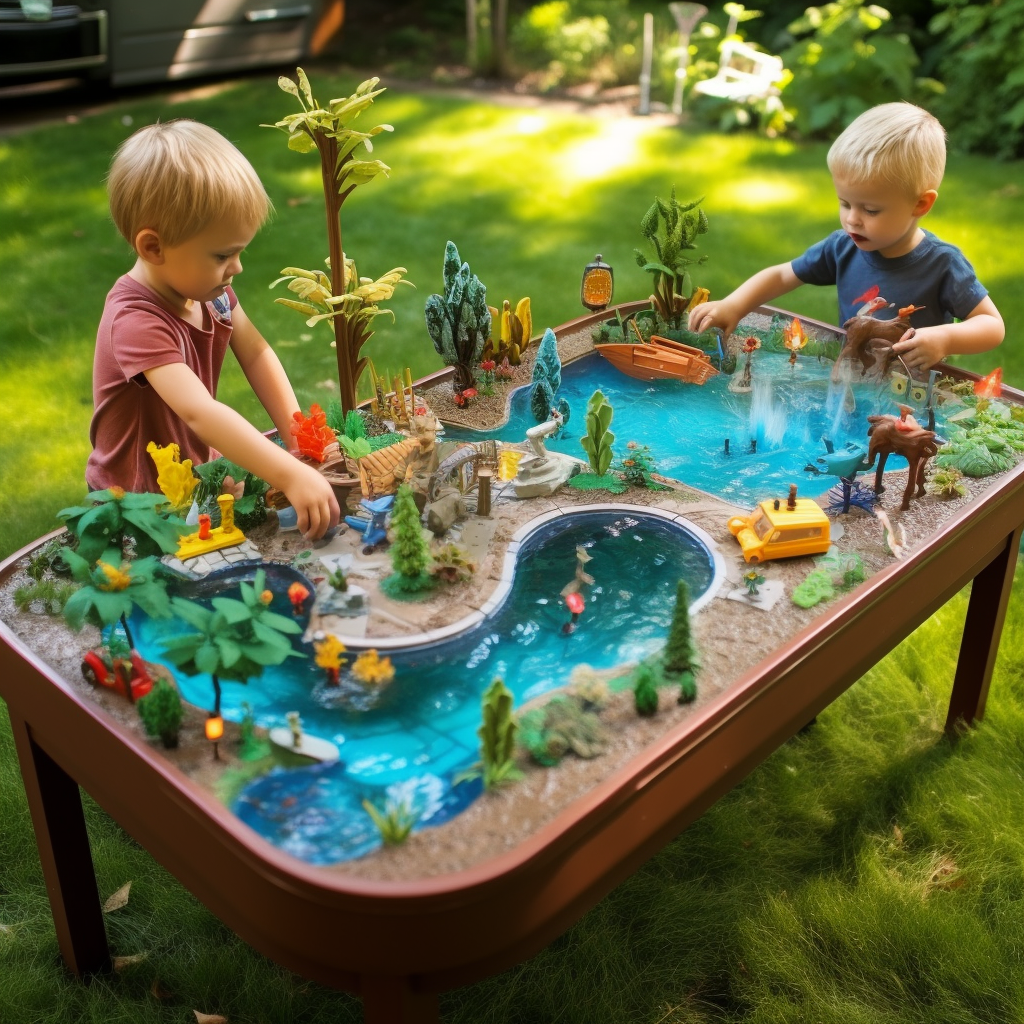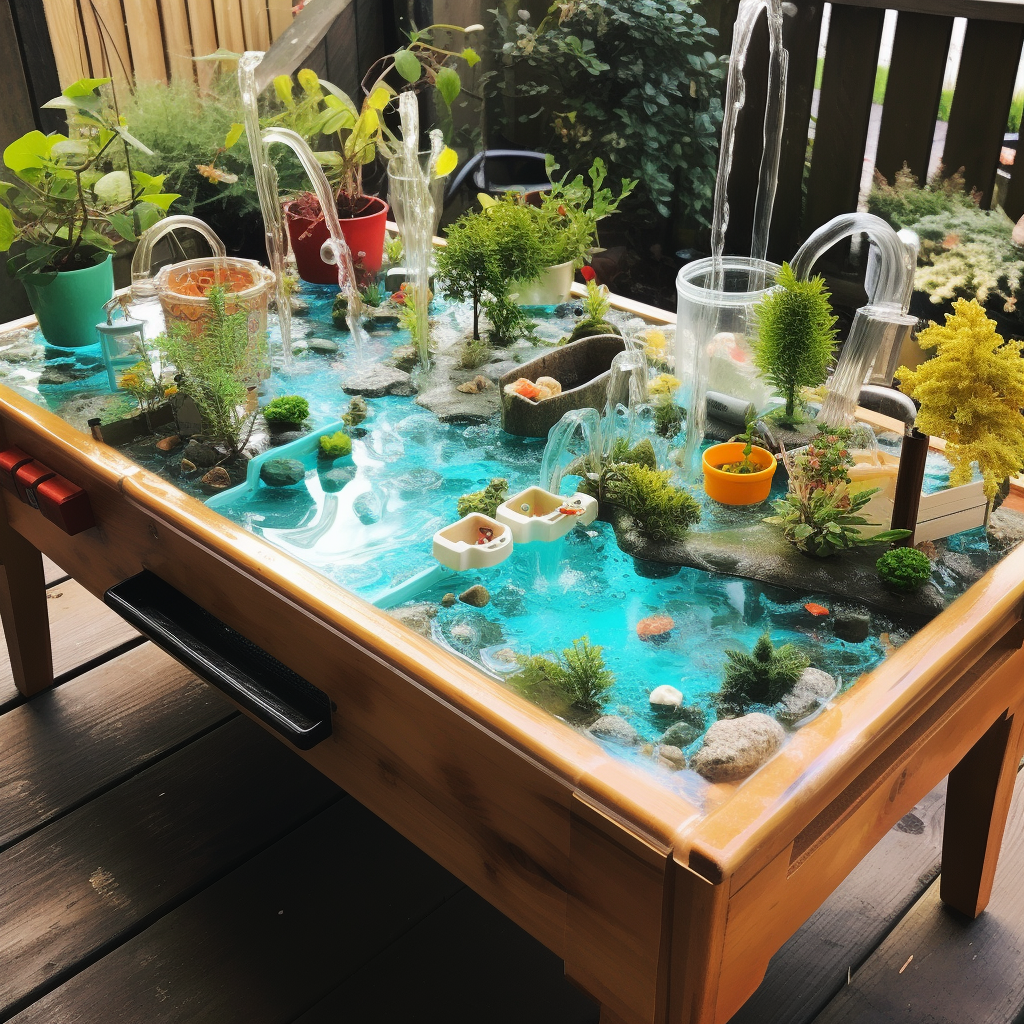Fun with Outdoor Water Tables to Stimulate Toddler Sensory Development
As summer approaches, the great outdoors beckon children to immerse themselves in the wonders of nature. Outdoor play is not only a source of entertainment but also offers numerous developmental benefits for children aged 3 to 8. Among the many activities that captivate their imagination, water play with a water table stands out as a refreshing and engaging option. In this article, we will explore the benefits of children playing outdoors with a water table during the summer season.
Stimulates Sensory Development:
Water tables provide an excellent opportunity for young children to engage their senses and explore the world around them. The feel of water, the sound of splashing, and the sight of colorful objects floating on the surface all contribute to sensory stimulation. As children pour, scoop, and splash water, they enhance their tactile, auditory, and visual perception, fostering overall sensory development.
Promotes Cognitive Skills:
Playing with a water table encourages children to engage in problem-solving and critical thinking. They can experiment with cause and effect by observing how pouring water from one container affects the water level in another. They also learn about concepts like volume, buoyancy, and flow as they manipulate the water and various objects within it. This hands-on experience fosters cognitive skills such as spatial awareness, logical reasoning, and early science concepts.
Enhances Fine Motor Skills:
Water play requires precision and control of hand movements, which aids in the development of fine motor skills. Pouring water, squeezing sponges, and manipulating small objects in the water table all contribute to the refinement of hand-eye coordination and manual dexterity. These skills are crucial for tasks like writing, drawing, and buttoning clothes, making water play an enjoyable and beneficial activity for young children.
Encourages Social Interaction:
Playing with a water table often becomes a shared experience, fostering social interaction and cooperation among children. They can collaborate on building dams or floating structures, take turns pouring water, or engage in imaginative play scenarios. Through communication, negotiation, and collaboration, children develop important social skills, such as sharing, empathy, and problem-solving within a group setting.
Boosts Physical Activity:
Engaging in water play outdoors also promotes physical activity, as children move, bend, and reach to interact with the water table and its accessories. They can run, jump, and squat as they explore different water play stations or chase floating objects. Water play helps improve gross motor skills, strength, and overall physical fitness, contributing to a healthy lifestyle.
Provides Open-Ended Play Opportunities:
One of the greatest advantages of water tables is their open-ended nature, allowing children to engage in unstructured play. With an array of tools, cups, and objects at their disposal, children can create their own water experiments, build imaginary worlds, or engage in sensory exploration based on their interests and curiosity. This freedom fosters creativity, imagination, and self-expression, allowing children to take the lead in their play experiences.
As the temperature rises and the summer sun shines, providing children aged 3 to 8 with the opportunity to play outdoors with a water table offers a myriad of benefits. From sensory stimulation to cognitive development, fine motor skill enhancement to social interaction, the combination of water and outdoor play sparks joy and supports holistic growth. So, let's embrace the magic of water play this summer and watch as our children flourish amidst the wonders of the natural world.
Stimulates Sensory Development:
Water tables provide an excellent opportunity for young children to engage their senses and explore the world around them. The feel of water, the sound of splashing, and the sight of colorful objects floating on the surface all contribute to sensory stimulation. As children pour, scoop, and splash water, they enhance their tactile, auditory, and visual perception, fostering overall sensory development.
Promotes Cognitive Skills:
Playing with a water table encourages children to engage in problem-solving and critical thinking. They can experiment with cause and effect by observing how pouring water from one container affects the water level in another. They also learn about concepts like volume, buoyancy, and flow as they manipulate the water and various objects within it. This hands-on experience fosters cognitive skills such as spatial awareness, logical reasoning, and early science concepts.
Enhances Fine Motor Skills:
Water play requires precision and control of hand movements, which aids in the development of fine motor skills. Pouring water, squeezing sponges, and manipulating small objects in the water table all contribute to the refinement of hand-eye coordination and manual dexterity. These skills are crucial for tasks like writing, drawing, and buttoning clothes, making water play an enjoyable and beneficial activity for young children.
Encourages Social Interaction:
Playing with a water table often becomes a shared experience, fostering social interaction and cooperation among children. They can collaborate on building dams or floating structures, take turns pouring water, or engage in imaginative play scenarios. Through communication, negotiation, and collaboration, children develop important social skills, such as sharing, empathy, and problem-solving within a group setting.
Boosts Physical Activity:
Engaging in water play outdoors also promotes physical activity, as children move, bend, and reach to interact with the water table and its accessories. They can run, jump, and squat as they explore different water play stations or chase floating objects. Water play helps improve gross motor skills, strength, and overall physical fitness, contributing to a healthy lifestyle.
Provides Open-Ended Play Opportunities:
One of the greatest advantages of water tables is their open-ended nature, allowing children to engage in unstructured play. With an array of tools, cups, and objects at their disposal, children can create their own water experiments, build imaginary worlds, or engage in sensory exploration based on their interests and curiosity. This freedom fosters creativity, imagination, and self-expression, allowing children to take the lead in their play experiences.
As the temperature rises and the summer sun shines, providing children aged 3 to 8 with the opportunity to play outdoors with a water table offers a myriad of benefits. From sensory stimulation to cognitive development, fine motor skill enhancement to social interaction, the combination of water and outdoor play sparks joy and supports holistic growth. So, let's embrace the magic of water play this summer and watch as our children flourish amidst the wonders of the natural world.
Kids Water Tables
 Little Tikes Spiralin" Seas Waterpark Play TableCheck Price
Little Tikes Spiralin" Seas Waterpark Play TableCheck Price Step2 WaterWheel Activity Play TableCheck Price
Step2 WaterWheel Activity Play TableCheck Price Step2 Naturally Playful Sand & Water CenterCheck Price
Step2 Naturally Playful Sand & Water CenterCheck Price Step2 Arctic Splash Water TableCheck Price
Step2 Arctic Splash Water TableCheck Price Step2 Naturally Playful Sand TableCheck Price
Step2 Naturally Playful Sand TableCheck Price Step 2 Shady Oasis Sand And Water Play TableCheck Price
Step 2 Shady Oasis Sand And Water Play TableCheck Price Sand and Water Play SetCheck Price
Sand and Water Play SetCheck Price Step2 Play and Shade PoolCheck Price
Step2 Play and Shade PoolCheck Price Sizzlin" Cool Sand and Water WheelCheck Price
Sizzlin" Cool Sand and Water WheelCheck Price
